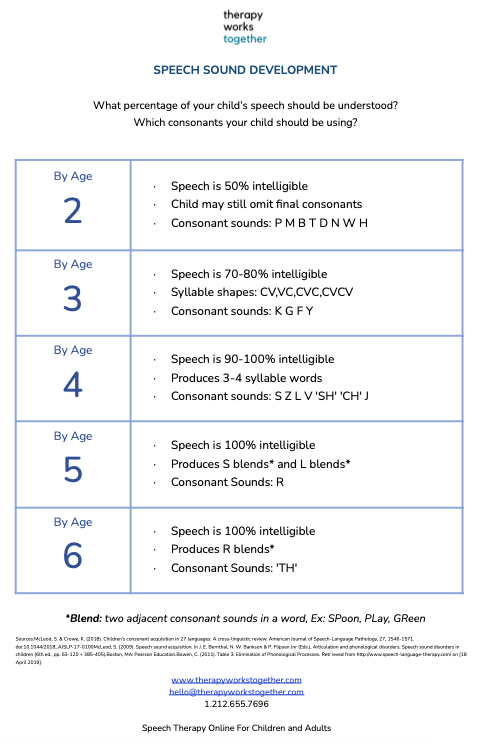Speech Articulation Issues in Children and How to Help Them

Speech articulation issues in children are characterized by a difficulty making the sounds in words properly when talking. There are developmental norms for when a child is supposed to master each speech sound, and every language has its own norms. When a speech language pathologist asks parents if their child has issues with speech or language, they mean the following:
- Speech: Does the child have an issue making the sounds in words? This could mean articulation of a specific sound (e.g., the /r/ sound in “rip,” or with parts of words like leaving off ends of words (e.g., the word “dog” is said “dah”)
- Language: Does the child have an age appropriate vocabulary bank? Do they use grammar correctly or say sentences that are long enough? A child who speaks in single words when they are three years old or does not know how to request verbally at that age, may have a language issue.
In this article we will address speech articulation. This means that we will focus on issues that a child might have with specific sounds. If you are concerned that your child might have a phonological disorder (e.g., the ends of words are omitted), other information might be more relevant. When to Get Help for Speech Articulation Issues
Articulation delays or disorders are treated by a speech language pathologist. During an initial evaluation, a child might be tested to determine what sounds your child needs. There are specific tests that help a speech therapist compare your child’s speech production to other children their age. This test will help determine treatment including strategy. It will also help answer questions about severity and how long therapy may take.
To know if your child should be articulating specific sounds at their age, you can refer to the following charts.
What Parents Can Do at Home to Work on Speech Articulation
Although speech therapy is an important part of resolving articulation difficulties, there are certain things you can do to help your child with improving their articulation skills outside of therapy.
- Practice Every Day: Set out a specific time each day to address your child’s speech articulation goals. It is hard to work on goals all day or integrate them into every utterance you say to your child. So try to set out 10-15 minutes per day at least to model correct production. You can also revise your child’s incorrect production. Meaning, when they pronounce a word incorrectly, you can say it correctly with a bit of extra emphasis. They do not have to repeat you, just listen.
- Don’t Imitate Incorrect Production: Model proper speech articulation instead of copying how your child pronounces a sound or leaves sounds out. Although the way your child pronounces words might be adorable at times, avoid reinforcing improper articulation by laughing at or repeating it.
- Read a Book: That’s right. You don’t need any special materials. Use the time you read books to model correct articulation. You can watch a video to see how to target therapy goals into a book reading activity here.
- Play and Model: Modeling proper speech while playing with your child is a great way to sneak in a speech lesson, much like reading to your child. Play time, whether you’re playing a board game or taking a nature walk, is a fun way to learn.
- Practice Words They Got Right: Although it’s critical to model accurate pronunciation of sounds and words your child is having difficulty with, it’s equally critical to practice ones your child is successful with. This not only promotes a sense of a job well done, but it also helps them cement their correct production.
You can start speech therapy online with an expert in speech articulation and learn how to help your child at home with specific strategies and techniques based on their needs.
Do Speech Articulation Issues Resolve on Their Own?
There are several factors that determine whether speech therapy is needed or a child will improve independently. Those factors include severity of the issue, family history, their age and more. A speech evaluation would be best to determine if speech therapy is recommended and can help tell if a child’s speech sound errors are not developmentally appropriate and might not resolve with time.
Therapy Works Together – Online Speech Therapy for Children and Adults
We care about every child and adult achieving their speech, language and communication goals. You can start speech therapy online now with a certified speech language therapist. We’ll discuss your personal needs, develop an individualized treatment plan, and schedule affordable online therapy sessions online at your convenience.




